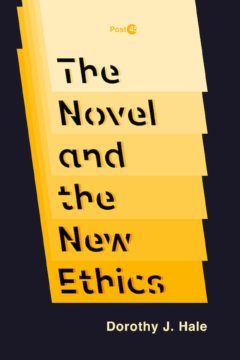Andrew Koenig at the LARB:
 “EVERYBODY BEHAVES BADLY,” says Hemingway’s Jake Barnes. “Give them the proper chance.” Why read novels about people behaving badly? Can a novel about bad people do readers good? These questions about the real-world effects of fictional characters — not just their “reality effects” — have come to the fore in recent years with the ascendancy of autofiction, on the one hand, and the persistence of the stoutly character-driven novel, on the other: the kind where characters, and, by extension, readers, get to know, and accept, social others who are nothing like them. Whereas autofiction asserts a kind of apolitical license — it’s my life, so it doesn’t matter if my problems seem trivial and if everyone I know is exactly like me — it’s incumbent on the latter kind of novelist to make social difference legible, rather than erasing or tokenizing it. It’s a tall order, and between the demands of professional and lay critics, on and off Twitter, the bar for ethical fiction, in which characterization is the vehicle for moral instruction, keeps getting raised ever higher.
“EVERYBODY BEHAVES BADLY,” says Hemingway’s Jake Barnes. “Give them the proper chance.” Why read novels about people behaving badly? Can a novel about bad people do readers good? These questions about the real-world effects of fictional characters — not just their “reality effects” — have come to the fore in recent years with the ascendancy of autofiction, on the one hand, and the persistence of the stoutly character-driven novel, on the other: the kind where characters, and, by extension, readers, get to know, and accept, social others who are nothing like them. Whereas autofiction asserts a kind of apolitical license — it’s my life, so it doesn’t matter if my problems seem trivial and if everyone I know is exactly like me — it’s incumbent on the latter kind of novelist to make social difference legible, rather than erasing or tokenizing it. It’s a tall order, and between the demands of professional and lay critics, on and off Twitter, the bar for ethical fiction, in which characterization is the vehicle for moral instruction, keeps getting raised ever higher.
Enter Dorothy J. Hale’s The Novel and the New Ethics.
more here.
